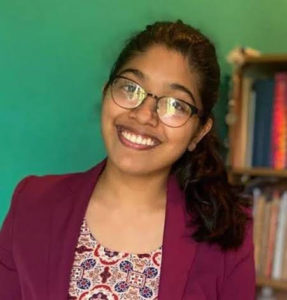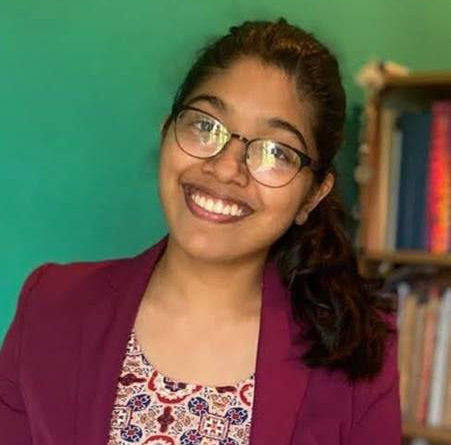What doesn’t harm you doesn’t hurt you? by Emma Rahman
INTRODUCTORY NOTE FOR THIS WEEK FROM NICOLE ASHWOOD, WORLD COUNCIL OF CHURCHES: November 1 2021 marks the 3rd anniversary of my role as Programme Executive with responsibility for the Just community of Women and Men at the World Council of Churches. Over the course of that season, I have been stretched, frustrated, angry, vindicated, and surprised. Above all, even at the worst moment, Joy and Hope have been my constant companions. For, were it not for Hope that we can reduce the scourge of Femicide, Child Abuse and Sexual and Gender-based Violence, I really would have given up. Who wants to continuously journey with the knowledge that not only are they targets because of their gender; but that those whom we have committed to protect, to cherish, to uphold as fully human are continually and continuously being targeted: disenfranchised, dismembered and deliberately ‘dissed’ simply for being female?
Certainly not me.
In working with WCC member churches, ecumenical partners and people of good will globally – whether with the Thursdays in Black campaign, with the Gender Advisory Group in preparing principles on Gender Justice, advocating with siblings in global spaces, or raising awareness through theological educational spaces and with church auxiliaries – I have the forever assurance, that I am not alone in the struggle, nor is what we do in vain. For the work for justice, equity and equality cannot be in vain when aimed at creating spaces for the marginalized to walk in the confidence that they have been seen and they can be heard.
This week in ecclesio, we hear from individuals affiliated with the Presbyterian Church in Trinidad and Tobago. More so with the St Andrews Theological College where, in response to the rising tide of Sexual and Gender-based Violence, they have established the first course on Gender Justice. From a teenager insisting that she is heard, to laypersons unpacking both theory and praxis, to a newly ordained minister journeying through the reality of Vicarious Trauma, the reflections this week invite us to join in effecting transformation wherever we are.
Special thanks to the Rev’d Sanya Beharry, who facilitated the collation of the articles, and is a key co-conspirator in transforming injustice through action.
TW: Violence, Abuse, Femicide
* (name changed for confidentiality)
Gender-Based Violence. What comes to mind when you hear the term Gender-Based Violence? The rape and murder of women? Harassment and violence against ‘effeminate’ men? Physical abuse of wives who are not submissive? Is it something that just happens out in the world? What doesn’t harm you doesn’t hurt you?
UNHCR defines Gender-Based Violence (GBV) as “harmful acts directed at an individual based on their gender. It is rooted in gender inequality, the abuse of power and harmful norms.“ Forms of gender-based violence can include “sexual, physical, mental (I would like to add here emotional, spiritual) and economic harm inflicted in public or private.” ¹ Studies have revealed that 1 in 3 women have experienced some form of abuse in their lifetime.
Within the context of Trinidad and Tobago, data shows that more than 7000 reports of domestic violence were made in only five years from 2014 to 2019. Over 7000 women were subjugated to despicable acts of violence and still, we turned a blind eye.
February 2021, the life of Andrea Bharatt was taken. Violence. Murder. Femicide. The straw that broke the camel’s back. This spark led the citizens of Trinidad and Tobago to the streets nationwide – with candlelight vigils in silent protest of the injustice faced by the women of our nation. The fire however has dimmed, have we returned to ‘What doesn’t harm you doesn’t hurt you?‘
Still, for me, gender-based violence was an issue that was on the outside. It was not personal. It didn’t affect me directly so I didn’t quite understand the gravity.
However, this changed recently, September 2021.
I am affiliated with a mission group that conducted a book drive to assist students from July to September. Our contact information was shared and a faithful child of God, Amisha* (name changed for confidentiality), reached out for assistance with baby items for her son. We usually get requests like this and thus follow through.
Amisha called again one day to speak about her situation. She couldn’t catch a break¹ – her husband was not only unfaithful but also neglected her and their seven children, with no provision of food, clothes or items for school or money. She spoke at length about the verbal and psychological abuse she and her children faced at the hands of her husband. Amisha received no support from her family and her ‘pastor’ encouraged her to keep trying to make the marriage work and to pray for her husband since that was the role of a wife. He continued to torment her, physically abuse her and constantly threaten her life.
Amisha decided that she was ready to take out a protection order against her husband and the day that she went to the police station, her husband took all seven children and threatened to put them in a home and kill her. By the grace of God alone, he returned with the children and the protection order was served to him. Since then, Amisha and her children have still faced difficulties, but she has expressed on many occasions that she and her children feel a sense of peace without him there. They are now able to be themselves without walking on eggshells, hoping not to do anything that may trigger him. Life for them is far from ideal – working through the effects of the violence inflicted on them will take time, support and patience.
From this ongoing experience with Amisha, I’ve acknowledged that it isn’t as simple as ‘deciding to leave,’ let alone with seven children. Gender-Based Violence isn’t limited to one aspect of life, there are layers of injustice that she and her children face on a daily basis.
- Economic injustice –
- She is constrained to taking care of her children from a lack of an active support system and thus is unable to work.
- Her husband who previously supported her and the children left them high and dry.
- Although she receives government funding, their support is limited. $800 per month to support 8 mouths, unrealistic.
- Social Support –
- Systems that are in place to aid her and her children have been unable to provide adequate support.
- The help her social worker is able to provide is limited.
- The police were not able to track down her children.
- Spiritual Abuse –
- Her pastor incessantly instructs her to
- “pray for her husband’s salvation”,
- “that he will change and come back to the family”
- “to prepare to take him back and have a marriage.”
- The pastor uses scripture violently against her, her faith however remains – that God is for her and her children.
During my second conversation with Amisha, it became blatantly clear that I was not equipped to deal with her situation alone. I reached out to a trusted minister who has counselled Amisha and supported me through helping her. From this experience, I’ve learnt that supporting someone who experienced gender-based violence and is trying to recover cannot be done by one person. While my minister and myself speak to her regularly, we also have a couple persons who assist financially with baby items and hampers and physically transporting items they require and spiritually, praying for them regularly. It requires a group effort of continuous support and advocacy for individuals.
Before Andrea Bharatt and meeting Amisha, for me, gender-based violence has been an enormous issue plaguing the country. Yes, it affected individuals. But I thought there was not anything that we can do to effect real change. I thought that the problem was too big, too out there, too difficult. However, though it may be difficult, daunting and appear insurmountable as Christ’s stewards we are called forth to be the prophetic voice in a land of chaos. We are called to act – as Christ did – by standing with and for the oppressed and marginalised. Not just standing with, but advocating for – assisting as much as we can.
The eradication of gender-based violence requires that we step out of our comfort to confront the injustice faced by many women and girls.
This includes
- edifying ourselves on GBV,
- grappling with ways that we perpetuate GBV,
- having challenging conversations when those around us perpetuate GBV,
- understanding that there is no clear cut path that we can follow, but forging our own advocacy paths that are specific to our contexts,
- understanding that it does not just take one type of action, but a holistic approach – implementing different avenues for change – economic, psychological, social, spiritual,
- being okay with becoming troubled – for in our places of discomfort is where transformation begins.
Gender based violence didn’t start happening overnight, it has been perpetually imposed upon our women and girls by patriarchal structures, power imbalances and toxic stereotypes and passed down through multiple generations, which has deafended us from the cries of injustice. We should not expect for change to happen instantly. Expended periods of time, energy and resources are required to make lasting change. Surely, it shall be done, with our commitment to advocacy, awareness and implementation of change within our contexts, by the grace of God alone.
Couldn’t catch a break¹ – hardship after hardship happened without any time of rest.
 Emma Rahman is a member of the Presbyterian Church of Trinidad and Tobago (PCTT) and her home church is Mizpah Presbyterian Church. She serves as an Assistant Producer for a national television outreach programme “Moments of Inspiration” and is the Secretary of a youth missions group affiliated with the PCTT – Souled Out Servants Youth Missions. She is a national open scholarship winner and is a current student at King’s College London, reading a degree in Liberal Arts (Maj – Digital Culture, Min – Theology).
Emma Rahman is a member of the Presbyterian Church of Trinidad and Tobago (PCTT) and her home church is Mizpah Presbyterian Church. She serves as an Assistant Producer for a national television outreach programme “Moments of Inspiration” and is the Secretary of a youth missions group affiliated with the PCTT – Souled Out Servants Youth Missions. She is a national open scholarship winner and is a current student at King’s College London, reading a degree in Liberal Arts (Maj – Digital Culture, Min – Theology).

